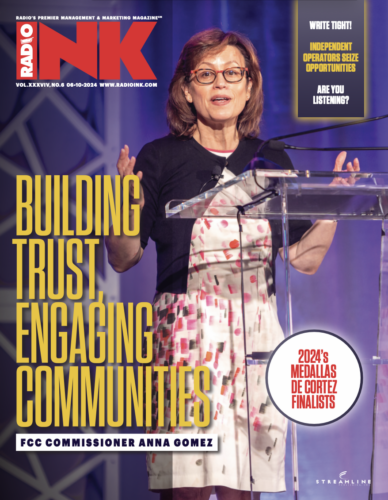
The Federal Communications Commission has taken a step back in time, voting to reinstate a portion of the radio duplication rule originally repealed in 2020. The reversal comes at the petition of the musicFIRST Coalition, the Future of Music Coalition, and REC Networks.
The regulation restricts commercial FM stations from duplicating more than 25% of their programming if they are commonly owned and share overlapping coverage areas. Originally designed to ensure diversity and prevent monopolistic practices in radio programming when first instituted in 1992, the duplication rule was removed under the belief that the competitive nature of the media market would naturally curb excessive duplication.
AM stations can continue airing duplicated programming, being excluded from the reversal.
The NAB has been a vocal opponent of the duplication rule, even before the FCC suggested eliminating it in 2019. With the advent of digital platforms like streaming services, podcasts, and satellite radio, the NAB posits how FM broadcasters face unprecedented competition.
While the reinstatement of this rule is aimed at fostering diversity and localism, the NAB argues it may paradoxically limit the creativity and responsiveness essential for radio stations to thrive in the digital age. The rule could be seen as a move that protects traditional broadcasting at the expense of adaptation and efficiency, potentially slowing the industry’s evolution in response to new media challenges.
NAB also highlights concerns about the additional regulatory burdens that reinstating the rule imposes on broadcasters. They argue that the rule adds unnecessary complexity and potential costs to FM broadcasters’ operations, which could stifle innovation and adaptation in an already challenging economic environment.
However, these concerns – among others – were dismissed by the FCC.
Chairwoman Jessica Rosenworcel stated, “For decades, the Federal Communications Commission has built its media policies around the values of localism, competition, and diversity. I believe in these values because over history they are the best guideposts we have for communications policymaking. I also believe we can modernize our rules while still honoring these principles. Here we do just that.”
Not all Commissioners were in agreement, thought. Commissioner Brendan Carr published his dissent, saying, “America’s radio broadcasters are facing an unprecedented set of challenges. Not only are they working through many of the same economic headwinds that businesses across the country are facing today, while in the background Big Tech companies continue to take greater shares of advertising spend, they are also seeing a large and growing set of unregulated competitors pouring into the market—new entrants that do not face the same regulatory barriers or costs that the federal government saddles on top of broadcasters.”
“If ever there were a moment for the FCC to modernize its regulations so that broadcasters could compete on a level playing field, that moment would be now. Yet the agency does the opposite today.”
The FCC is granting a six-month grace period for FM stations currently exceeding the duplication limits of the reinstated rule, starting 30 days after the rule’s publication in the Federal Register. This period is intended to prevent service disruptions and allow stations time to adjust. Stations needing to exceed these limits during this period are urged to apply for a waiver within the first 90 days after the rule takes effect.








